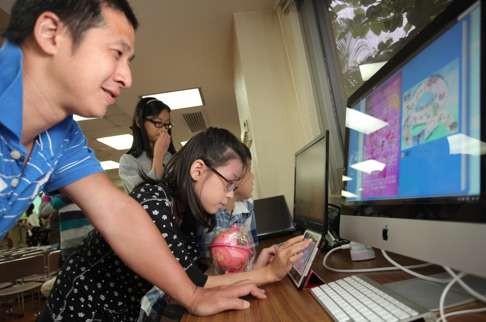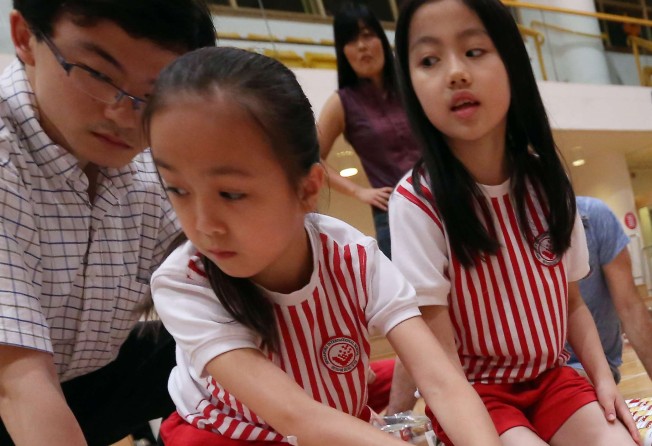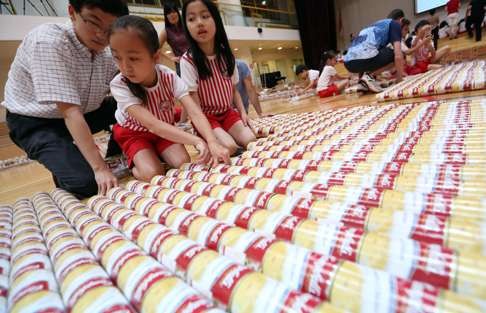
Why some Hong Kong teachers like parents’ help in classroom but others don’t
You’ve nothing to lose by volunteering to help at your child’s school, but it is up to the school administrators how they use your services and you need to respect that

Last year I helped out every week in my son’s Year 3 classroom. I enjoyed it and it helped me to know what was going on in school but this year the teacher hasn’t invited parents to help. Should I volunteer anyway?
The days have gone where parents dare not venture inside the school gates. Most schools nowadays pride themselves on being open and transparent, and are keen to involve parents in the life of the school and, to a greater or lesser extent, the life of the classroom. This ethos is generally very healthy and helps teachers to spread a deeper understanding of the education process.
When classes are as large as 30 or more, teachers are often grateful for as many pairs of adult hands as possible. This works best when parents can commit to a regular time each week so the teacher can plan carefully in order to maximise the help. However, teachers work in different ways and some are more comfortable having parents in the classroom than others. Schools themselves also take different views depending on their knowledge of the community and students themselves and will proceed in a way that they perceive to be in the best interests of the children in their care.
You certainly have nothing to lose by volunteering and it may be gratefully received. If your son’s teacher does make it clear that regular parental help is not on the agenda you could offer to help on one-off occasions such as school trips or cultural days. You could always take the opportunity to help in another classroom. Teachers of younger pupils particularly welcome extra help, as the children are not so independent and need support with the basics. As you probably know from previous experience, helping in the classroom can be very rewarding and informative for parents.

Some parents offer specialist skills connected to their own interests or careers. Over the years I’ve had many dedicated and talented parents in my classroom helping out with guided reading, practical maths tasks and art workshops. Other parents have come in on an occasional basis to do enlightening talks linked to different curriculum areas, helped children set up displays and volunteered as visiting authors during book week. Some have become so enthused that they have gone on to apply to be educational assistants or teachers.
Parents can make very positive contributions, especially when working with small groups of children. This not only offers more support to individuals, but also allows classroom activities to be more interactive and creative. It also frees up the teacher to spend more time with the other pupils in order to stretch the more able or give extra support to those who may be struggling.
However, schools do need to be cautious; parents may gain access to a range of confidential information relating to both teachers and students and this can cause difficulties if spread, even with the best of intentions. A visiting parent may misinterpret a situation in the classroom if they only see a relatively short period of a school week.

You mentioned that volunteering gave you a better understanding of what your son is doing in class. It is a great opportunity to gain knowledge about the learning process and different areas of the curriculum that will help you work with your son at home. However, occasionally parents offer to help for questionable reasons, such as checking out the teacher or being overly inquisitive about where their child stands academically within the class. This is generally counterproductive and can cause unhelpful tension.
Another misunderstanding is when parents appear in the classroom expecting to work with their own child exclusively and are not interested in helping others. This would be seen as unfair by other students and could even distract from the lesson in which a teacher is trying to meet the needs of the whole class. Parents should be prepared to give general help in the classroom or extra support for different groups of pupils, which may or may not involve their own child.
It is also important to consider your son’s feelings. Some children respond positively to their own parent helping in the classroom, whether it be directly with them or other groups of students. But some prefer to keep their school and home lives separate, perhaps even viewing their time at school as their first step towards independence.
Many primary schools use parents successfully and fully brief volunteers, clearly laying down parameters and explaining the reasons for the way they approach things. Guidelines about expectations, how to speak to students and respond to other parents quizzing them can be important and helpful for all involved. Feedback from parent helpers and teachers can even inform future practice and continue to encourage, as well as maximise parents’ contributions.